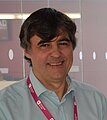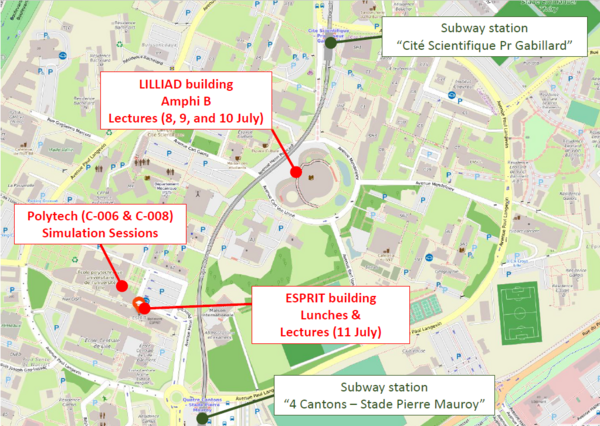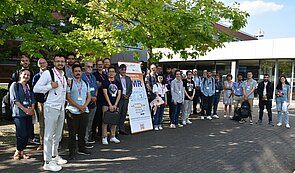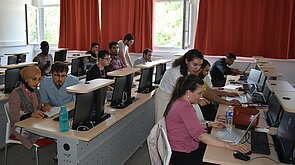EMR 2025
Modelling and control using EMR, application to HEVs and others
Summer School of University of Lille (France)
Download the EMR’25 flyer in PDF (soon)
The 17th EMR (Energetic Macroscopic Representation) international summer school is organized by University of Lille (France) from the 8th to 11th of July 2025 in hybrid mode . EMR’25 is supported by scientific organizations (IEEE-VTS, MEGEVH, CUMIN, L2EP)
Presentation
This workshop is focused on the Energetic Macroscopic Representation (EMR) methodology for modelling and control of complex electromechanical systems.
EMR is a graphical formalism that was introduced in 2000 to describe complex electromechanical systems. EMR has since been extended to complex multi-physical systems (thermal science, electrochemistry, fluid mechanics …). EMR is based on the action-reaction principle to organize the interconnection of models of sub-systems according to the physical causality (i.e. integral causality). This description highlights energetic properties of the system (energy accumulation, conversion and distribution). Moreover, an inversion-based control can be systematically deduced from EMR using specific inversion rules.
Compared with other graphical description, such as Bond Graphs or Causal Ordering Graphs (COG), EMR has a more global energetic view and contributes to system’s control design. It differs from structural description tools such as Physic Modelling Language (PML) using Object-Oriented Modelling Language, which makes its libraries to be coupled in the same way as physical units. EMR is focused on the system function and not only on the system structure. EMR gives insights into the real energy operation of systems and allows a deep understanding of its potentialities from a dynamic point of view.
In short, the distinct features of EMR lie in its clarity of physical concepts, as well as their physical causality, and its functional description rather than a structural description. It hence contributes significantly to the design of control and energy management of systems.
Summer School
This Summer School is aimed at Master and PhD students, Engineers and scientists, from both academia and industry, who have to model and control new multi-physical systems such as industrial multi-drive systems, traction and propulsion systems, hybrid electric vehicles, or renewable energy generation systems.
Chair

Dr. Clément MAYET, General chair of EMR'25 (L2EP, Univ. Lille, France, IEEE-VTS member)
Co-Chair

Prof. Alain BOUSCAYROL - Co-Chair of EMR'25 (University of Lille, L2EP, MEGEVH, France)
Location
University of Lille
Regsitraton and Lunches - Esprit bulding
Lectures - Lilliad Leraning center
Simulation - Polytech building
Campus "Cite Scientifique"
59655 Villeneuve d'Ascq CEDEX
To access the campus:
- the A23 or A27 motorway
- metro line 1 station Cite Scientifiques or station "4 cantons"



